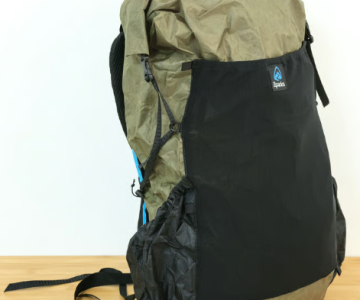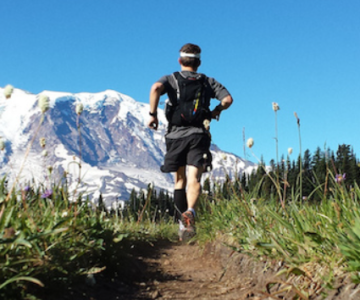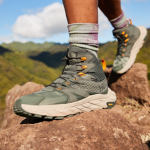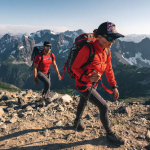Backpacking offers a deeper connection with nature than day hikes, offering more time on the trail and a greater sense of adventure. But with this extended time comes additional challenges. Since backpacking often takes you far from immediate help, it’s crucial to be prepared and self-sufficient. Mastering certain skills can significantly enhance your experience and ensure you are ready to handle whatever the trail throws at you.
1. Planning Your Trip
As with any adventure, preparation is key. Without proper planning, you may encounter weather storms, trail closures, or unexpected obstacles. Do thorough research before your trip and make sure to check:
- Trail maps
- Required permits
- Weather forecasts
- Current trail conditions
- Water source locations
And don’t forget to let someone know your plans and when to expect you back.
2. Packing Food for the Trail
When choosing food for backpacking, consider the calorie-to-weight ratio. Lightweight, high-calorie options like freeze-dried meals, dehydrated foods, pasta, couscous, and quinoa will provide the energy you need without adding unnecessary weight. Expect to consume 2,500 to 4,500 calories per day, depending on your size and effort level.
For snacks, mix in nuts, dried fruit, energy bars, and candies. These provide a steady energy boost and are easy to carry. Remember, in bear country, store your food in a bear-proof container to keep it safe from wildlife.
3. Washing Clothes While Backpacking
If your trip extends beyond a few days, you may need to wash your clothes. A dry bag can be an effective tool for this, allowing you to wash your clothes using soapy water. Add your dirty clothes to the bag, shake it for a few minutes, and rinse with clean water. Always use biodegradable soap and dispose of water 200 feet from any water sources.
4. Packing Your Backpack
Packing your backpack efficiently can make or break your hiking experience. A well-packed bag distributes weight evenly and ensures your comfort. Think of it like playing Tetris—everything must fit in its right place. Take your time packing and consider using a methodical approach to maximize space and balance.
5. Answering Nature’s Call
In remote areas, finding a toilet may not be an option. You’ll need to know how to handle bodily functions in the wilderness. A cat hole, a simple 6-inch hole dug 60 meters from any water source, is typically the best solution. Be sure to pack out toilet paper if required, or as a general practice, to minimize environmental impact.
6. Navigation Skills
While GPS and smartphones are handy, they can fail. Basic navigation skills are invaluable for any backpacker. Learn how to use a map and compass and understand how to use landmarks to find your position. This skill is vital when technology is unavailable or unreliable.
7. Preventing Blisters and Chafing
Long hikes, especially with a heavy pack, can lead to blisters and chafing. Sweat, friction, and improper clothing can worsen these issues. Avoid cotton, use moisture-wicking materials, and apply body balm to high-friction areas. Preventive care can make your hike much more comfortable.
8. Ensuring a Secure Tent Pitch
A well-pitched tent will protect you from the elements and ensure a good night’s sleep. Make sure the tent is taut, especially if you’re using a tarp or freestanding shelter. Properly tensioned guylines and secure stakes are key to keeping your shelter in place when wind picks up.
9. Choosing the Right Campsite
Selecting the right campsite can impact your comfort and safety. Follow these essential tips for picking a good spot:
- Choose level ground.
- Avoid low areas prone to flooding.
- Stay clear of mountain tops, ridges, and lone trees to reduce the risk of lightning.
- Follow Leave No Trace principles.
Upgrading your tent stakes can also improve the stability of your shelter, especially in loose or soft soil.
10. First Aid Skills
Accidents can happen, and knowing how to handle basic first aid is crucial when help is far away. Learn how to treat common hiking injuries like sprains, burns, and blisters. Having a well-stocked first aid kit is vital for any backpacker.
11. Staying Warm and Dry
Weather can change quickly on the trail, and even a light drizzle can lead to hypothermia if you’re not prepared. Proper layering techniques and moisture-wicking clothing are key to staying comfortable. Make sure to keep wet clothes outside the tent and use an insulating layer to stay warm when resting.
12. Collecting and Filtering Water
On long hikes, it’s essential to hydrate frequently. Carrying enough water can be impractical, so it’s best to rely on natural water sources. Always filter or purify water from streams and lakes to eliminate harmful bacteria. Carry a filtration system, and if necessary, use purification tablets or a UV purifier for extra safety.
13. Keeping Food Safe from Animals
When backpacking in areas with bears or other wildlife, securing your food is vital. A bearproof canister is the most effective way to store food in bear country. In areas with less wildlife, hanging your food can still be a good option to keep it safe. Always store food out of reach when not in use.
14. Starting a Fire
In emergencies, a fire can provide warmth, help with cooking, and signal for help. Building a campfire with wet wood requires skill, but with practice, you can master this essential wilderness survival skill. Always ensure your fire is out completely before leaving the site.
15. Leave No Trace
One of the most important skills for any outdoor adventurer is following Leave No Trace principles. These guidelines help preserve the wilderness for future generations. Practice these seven principles to minimize your impact:
- Camp on durable surfaces.
- Pack out all trash.
- Properly dispose of human waste.
- Avoid contaminating water sources.
- Minimize campfire impact.
By following these steps, you’ll help protect the wilderness and ensure that it remains pristine for those who follow.
Conclusion: Get Out and Practice
The best way to hone your backpacking skills is to get out there and put them to use. Only through real-world experience can you truly learn how to handle the challenges of the trail. So, gear up, practice these skills, and get ready for your next adventure!





